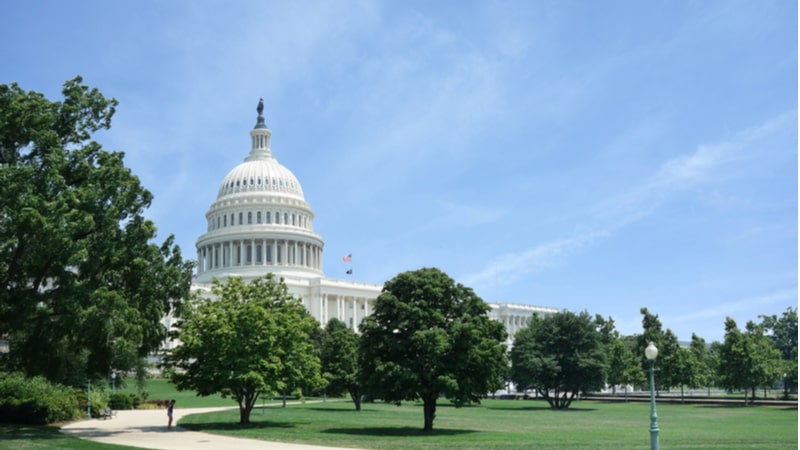
Chairs of the Congressional Blockchain Caucus Reps. David Schweikert, R-Ariz., and Darren Soto, D-Fla., re-introduced legislation earlier this week to expand government use and the definition of blockchain, ensuring the use of the technology for electronic records and signatures.
“I am pleased to re-introduce this critical legislation to ensure our laws are working to support emerging technologies like blockchain,” Rep. Schweikert said in a statement. “Too many of our laws are continuing to prohibit innovation and advancements for efficiency in our society. This legislation is a part of the Congressional Blockchain Caucuses’ continued work to future-proof our policy.”
The Blockchain Records and Transaction Act, H.R. 8524, updates the definition of the phrase “electronic records” to include records maintained on blockchain technology. By amending the Electronic Signatures in Global and National Commerce Act to clarify how the act applies to electronic records, electronic signatures, and smart contracts, the lawmakers intend to establish national standards for the legal validity of records involving the emerging tech.
The legislation also provides government definitions for the terms blockchain and smart contract to prevent government entities from avoiding giving legal recognition to blockchain records.
“Innovation is embedded into our nation’s DNA,” Rep. Soto said. “With the growth of blockchain technology, it’s up to Congress to provide a legal framework to support its technological advances. As a lawyer and notary, I understand the importance of validated signatures for legal documentation as an essential starting point in building a blockchain-enabled infrastructure.”
Lawmakers referred the legislation to the House Committee on Energy and Commerce.
